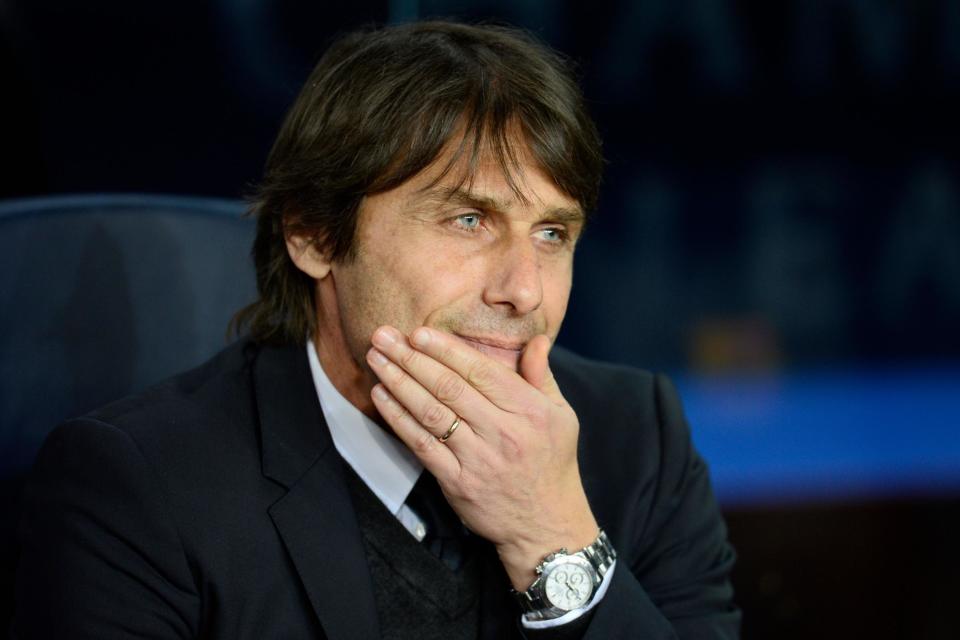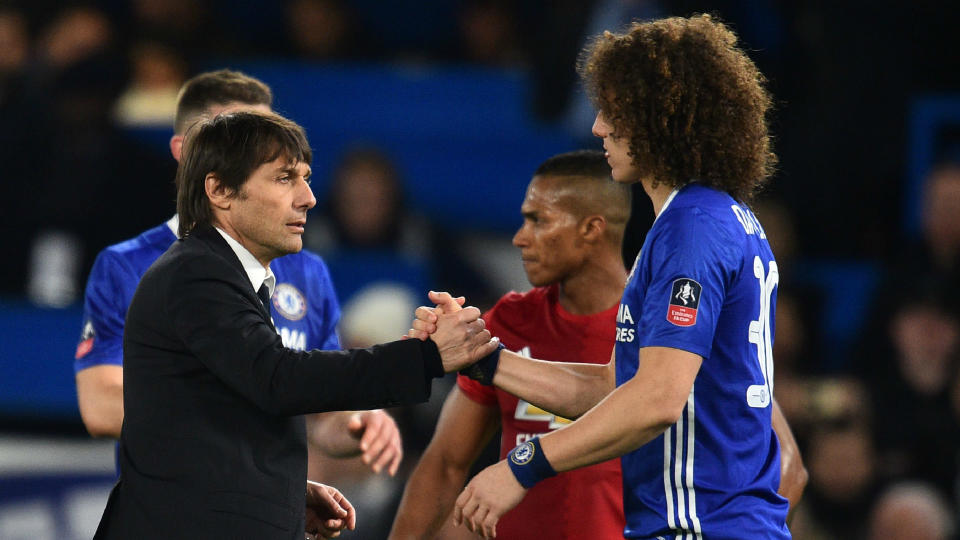Chelsea's sorry season should damage Conte's reputation

Italy want Antonio Conte. Paris Saint-Germain want Antonio Conte. One is confirmed, the other reported. One way or another, Chelsea’s disgruntled, impatient manager seems to have an escape strategy. Chelsea may sink into the Europa League next season but he can tunnel his way out of Stamford Bridge.
All of which may suggest his suitors do not blame him for one of the worse title defences in Premier League history. Chelsea, it is safe to say, did not expect to be 25 points behind Manchester City and languishing in fifth. Conte may have created a narrative that it isn’t his fault and that he is powerless to prevent their problems.
And yet his standing should be damaged: not, presumably, in the eyes of those who do want to employ him, but in the views of others who might consider it at some stage in the future. An image as a relentlessly consistent winner may be dented: after league titles in his four previous seasons of club management, Conte has not come close to adding a fifth. Nor, although Chelsea arguably played better than an aggregate defeat of 4-1 to Barcelona would indicate, has he answered the criticisms about his Champions League record.
If the facts are unflattering, impressions and opinions could be harmful. Conte’s constant complaining about Chelsea’s transfers and, by implication, their powerbrokers, may not endear him to their counterparts at other clubs. By way of comparison, Mauricio Pochettino and Jurgen Klopp, who are never publically critical of their employers, are low-maintenance managers. Even Jose Mourinho, controversial as he can appear, often goes out of his way to praise “Mr Woodward”, as he refers to Manchester United’s executive vice-chairman. Not Conte.
He may not want to be held liable for unconvincing signings. Equally, whether or not he identified the transfer targets, he still has the responsibility of managing them. His rhetoric about Ross Barkley, one he definitely did not sign, may be noted at other clubs where executives are responsible for some of the recruitment. Overlooking Michy Batshuayi, another club signing who is proving prolific at Dortmund, appears a further indication Conte is not sufficiently open-minded about some brought in against his wishes.
And while Alvaro Morata’s dismal return of five goals in his last 31 games shows his difficulties settling in England and the first season as the major striker of an elite club, it also reflects poorly on Conte. He has not got Tiemoue Bakayoko performing the way Leonardo Jardim did last season, or Danny Drinkwater playing as well as he did two years ago for Claudio Ranieri. Nor do Chelsea look a team who have spent some £230 million, even if more than half is offset by sales, in the last 12 months.
Then there is Conte’s handling of some of his title winners. His man-management can be questioned; his intensity and single-mindedness helped account for his initial success, but it looks less of an asset now. Chelsea did well to secure a £60 million fee for Diego Costa after his manager undiplomatically and openly ended the striker’s Blues career. The Italian deserves praise for conjuring more consistent excellence from David Luiz than anyone else had last season; this year, however, the Brazilian was first miserable and then marginalised, even though Conte has been justified in promoting Andreas Christensen.

If Eden Hazard has not been alienated, there are hints – most notably in his comments after the 1-0 defeat at Manchester City – that he has been nonplussed, particularly by the negativity at the Etihad Stadium. Conte’s tactical approach amounted to a vote of no confidence in his side. He may deem it pragmatism; it would be intriguing if that mindset would deter, say, Real Madrid.
There has already been the sense that Conte’s bad mood has transmitted itself to his players. At their worst, Chelsea have been self-pitying while lashing out, collecting two red cards each against Burnley and Norwich. A manager can be a positive influence on behaviour; in an undisciplined team, he has appeared the opposite.
Whereas Conte’s prowess as a tactician was established with the masterstroke of switching to 3-4-2-1 last season, there have been more mixed returns this; there are times his slight variant, of 3-5-1-1, has been too defensive and at times the ploy of using Hazard as a false nine has backfired.
Perhaps, in his defence, it was unrealistic to expect Chelsea to reinvent them every season, just as it is to get players such as Victor Moses to play so far above their normal level year after year. Conte deserves to keep much credit in the bank for his transformation of Chelsea and for producing a league campaign of relentless dominance that few envisaged, just as he is correctly lauded for his earlier work with Italy and Juventus.
Yet while he rightly retains a band of admirers, Chelsea’s subsequent decline highlights other facets of his management. And while a seeming miracle worker has put effort into avoiding the blame, the reality of a troubled season should be reflected in his reputation.

 Yahoo Sport
Yahoo Sport 






































